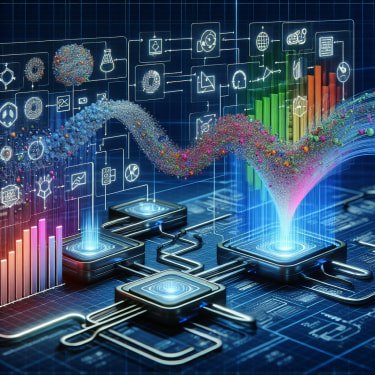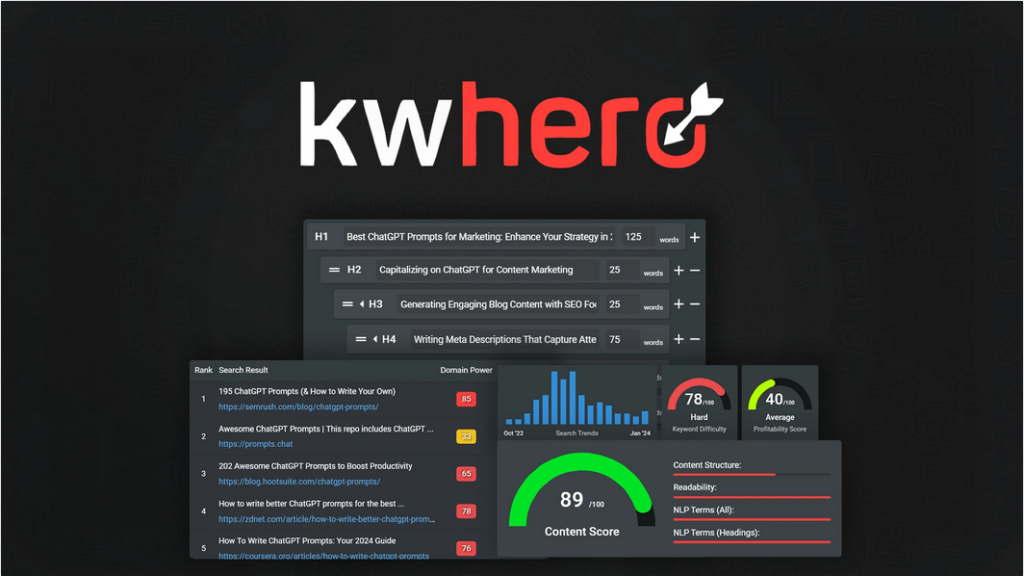Optimization AI Data Transformation
Managing and analyzing vast amounts of data can be a daunting task for any organization. However, with the help of AI tools and machine learning algorithms, it is possible to optimize the process and derive valuable insights from the data. When it comes to data analysis, ensuring data quality and data privacy are crucial aspects. AI systems can play a significant role in addressing these challenges and ensuring that the data for analysis is accurate and secure.
Supply Chain Optimization
One of the key areas where AI applications can make a significant impact is in supply chain optimization. By analyzing real-time data from various sources, ai algorithms can help organizations make informed decisions to streamline their operations and reduce costs. Whether it is route optimization or inventory management, AI can provide valuable insights that lead to more efficient processes and ultimately, better business outcomes.
Data Transformation with AI
In the realm of data processing and data analytics, AI technologies are revolutionizing the way organizations work with data. By automating data transformations and utilizing ai models to analyze data, organizations can gain a deeper understanding of their data and make more informed decisions. Whether it is analyzing customer data to improve marketing strategies or leveraging historical data for predictive analysis, AI plays a crucial role in extracting value from the data.
AI Adoption and Governance
As organizations continue to adopt AI and automation technologies, the importance of data governance becomes increasingly evident. Ensuring that new data is properly managed and that data directly impacts business outcomes is essential for successful AI implementation. Additionally, the rise of unstructured data presents new challenges and opportunities for organizations looking to leverage AI for their operations. By embracing explainable AI and building successful ai strategies, organizations can unlock the full potential of AI and drive innovation in their business.
read about Optimization AI Big Data Analytics
What is Data Transformation?
Data transformation involves converting data from one format or structure to another. This process includes tasks such as cleaning, aggregating, and enriching data to make it more usable and valuable for analysis. In the realm of AI, data transformation plays a crucial role in training machine learning models and aiding in informed decision-making.
Importance of Data Transformation
- Cleaning Data: Removing inconsistencies and errors from data sets.
- Aggregating Data: Combining data from multiple sources for comprehensive analysis.
- Enriching Data: Adding relevant information to enhance the value of the dataset.
The Role of AI in Data Transformation
AI technologies, including machine learning algorithms and natural language processing, can greatly enhance the efficiency and accuracy of data transformation tasks. By harnessing AI, businesses can automate repetitive data processing tasks, uncover patterns and trends within vast datasets, and extract valuable insights from unstructured data sources.
Application of AI in Data Transformation
- Automating Tasks: AI can streamline data processing workflows, saving time and resources.
- Data Analysis: AI algorithms can quickly analyze large volumes of data for actionable insights.
- Extracting Insights: AI can identify hidden patterns in data that may not be apparent to humans.
Benefits of Optimization AI Data Transformation
- Improved Data Quality: AI-powered tools can assist in cleaning and standardizing data, ensuring accuracy and consistency.
- Faster Insights: AI algorithms can process data at a rapid pace, allowing real-time insights.
- Cost Savings: Automation of data transformation tasks can lead to reduced manual labor costs.
- Enhanced Decision-Making: AI can reveal hidden data relationships for more informed decision-making.
Advantages of AI Data Transformation
- Accuracy: Minimizing errors in data processing.
- Speed: Rapid analysis of data for timely decision-making.
- Efficiency: Streamlining workflows for increased productivity.
How to Implement Optimization AI Data Transformation
- Identify Business Goals: Defining objectives and key performance indicators is crucial for successful implementation.
- Choose the Right Tools: Selecting AI-powered data transformation tools that align with business needs is essential.
- Data Preparation: Ensuring data cleanliness and accuracy before inputting it into AI algorithms is vital.
- Continuous Monitoring and Improvement: Regularly updating AI models to maintain relevance and accuracy.
Implementation Strategies
- Goal Setting: Establishing clear objectives for AI data transformation.
- Tool Selection: Researching and selecting the most suitable AI tools for the business.
- Data Quality Assurance: Ensuring data integrity and consistency for reliable analysis.
- Model Maintenance: Regularly updating and refining AI models for optimal performance.
Case Study: Retail Industry
An exemplary showcase of the benefits of Optimization AI Data Transformation can be witnessed in the retail sector. Through the utilization of AI-powered data transformation tools, retailers can analyze customer purchasing behavior, demographic data, and market trends to personalize marketing campaigns, optimize pricing strategies, and streamline inventory management.
Conclusion
In conclusion, Optimization AI Data Transformation holds immense potential to revolutionize the data processing and analysis practices of businesses. By leveraging AI technologies, organizations can enhance data quality, expedite decision-making processes, and drive superior business outcomes. To effectively implement AI data transformation, businesses must meticulously plan their strategy, select the appropriate tools, and consistently monitor and enhance their AI models. Through strategic utilization of AI, businesses can unlock new insights and opportunities for growth in today’s data-driven landscape.
FAQ
What is Data Transformation?
Data transformation is the process of converting data from one format or structure into another. This can involve cleaning, aggregating, and enriching data to make it more usable and valuable for analysis.
What is the Role of AI in Data Transformation?
AI technologies, such as machine learning algorithms and natural language processing, can significantly improve the efficiency and accuracy of data transformation tasks. By leveraging AI, businesses can automate repetitive data processing tasks, identify patterns and trends in large datasets, and extract valuable insights from unstructured data sources.
What are the Benefits of Optimization AI Data Transformation?
- Improved Data Quality: AI-powered data transformation tools can help businesses clean and standardize their data, ensuring accuracy and consistency across all datasets.
- Faster Insights: AI algorithms can process and analyze data at a much faster rate than traditional methods, enabling businesses to derive actionable insights in real-time.
- Cost Savings: By automating data transformation tasks, businesses can reduce manual labor costs and free up resources to focus on more strategic initiatives.
- Enhanced Decision-Making: AI can uncover hidden patterns and relationships in data that humans may overlook, leading to more informed decision-making and better business outcomes.
How to Implement Optimization AI Data Transformation?
- Identify Business Goals: Before implementing AI data transformation tools, businesses should clearly define their objectives and key performance indicators to ensure alignment with their overall strategy.
- Choose the Right Tools: There are many AI-powered data transformation tools available on the market, so businesses should carefully evaluate their options and select the tools that best meet their needs.


